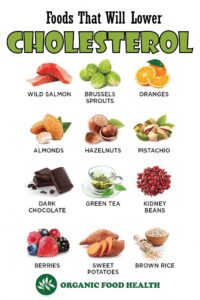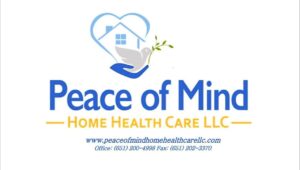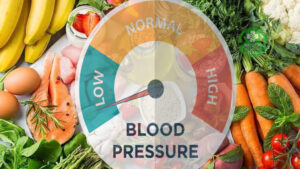Cholesterol is a waxy substance found in your blood that is essential for various bodily functions. However, when cholesterol levels become imbalanced, it can lead to serious health issues such as heart disease and stroke. Statins, a popular class of drugs, have long been the go-to medication for lowering cholesterol levels. However, not everyone can tolerate statins or may experience side effects. In such cases, non-statin cholesterol medicine can be a viable alternative. In this article, we will explore the world of non-statin cholesterol medicine, its effectiveness, benefits, and potential side effects.
Understanding Cholesterol
Before diving into the specifics of non-statin cholesterol medicine, it’s crucial to understand what cholesterol is and how it affects our health. Cholesterol is produced naturally by our bodies and is also present in certain foods. It plays a vital role in building healthy cells, producing hormones, and aiding in digestion. However, high levels of low-density lipoprotein (LDL) cholesterol, commonly known as “bad” cholesterol, can accumulate in the walls of your arteries, forming plaques that can lead to heart disease.
High-density lipoprotein (HDL) cholesterol, often referred to as “good” cholesterol, helps remove LDL cholesterol from the bloodstream, reducing the risk of heart disease. Maintaining a healthy balance between LDL and HDL cholesterol is crucial for overall cardiovascular health.
The Role of Statins in Cholesterol Management
Statins are a class of drugs that work by reducing the production of cholesterol in the liver. They have been widely prescribed by healthcare professionals for decades due to their proven effectiveness in lowering LDL cholesterol levels. Examples of statin medications include atorvastatin, simvastatin, and rosuvastatin.
Statins work by inhibiting an enzyme called HMG-CoA reductase, which is involved in the production of cholesterol in the liver. By reducing cholesterol production, statins help lower LDL cholesterol levels and decrease the risk of cardiovascular events such as heart attacks and strokes.
While statins have been proven to be effective, they are not without potential side effects. Some individuals may experience muscle pain, liver damage, digestive issues, or memory problems when taking statins. Additionally, certain individuals may be intolerant to statin medications or may experience drug interactions with other medications they are taking.
Non-Statin Cholesterol Medications
For individuals who cannot tolerate statins or are looking for alternative treatment options, non-statin cholesterol medications can provide a viable solution. These medications work in different ways to lower LDL cholesterol levels and reduce the risk of cardiovascular events. Let’s explore some of the most commonly prescribed non-statin cholesterol medicines:
1. Ezetimibe (Zetia)
Ezetimibe is a medication that works by reducing the absorption of cholesterol in the small intestine. It inhibits a protein called NPC1L1, which plays a crucial role in the uptake of cholesterol from the diet. By blocking this protein, ezetimibe helps lower LDL cholesterol levels without affecting the production of cholesterol in the liver.
Studies have shown that when used alone, ezetimibe can reduce LDL cholesterol levels by around 18% to 20%. It is often prescribed as an adjunct therapy to statins for individuals who require additional LDL cholesterol reduction.
2. PCSK9 Inhibitors
PCSK9 inhibitors are a relatively newer class of non-statin cholesterol medications that have shown promising results in reducing LDL cholesterol levels. These medications work by blocking the PCSK9 protein, which plays a role in the degradation of LDL receptors in the liver. By inhibiting PCSK9, more LDL receptors are available to remove LDL cholesterol from the bloodstream, resulting in lower LDL cholesterol levels.
Studies have shown that PCSK9 inhibitors can reduce LDL cholesterol levels by up to 60% when used in combination with statins. They are often prescribed for individuals with familial hypercholesterolemia or those who cannot tolerate statin medications.
3. Bile Acid Sequestrants
Bile acid sequestrants, also known as bile acid resins, are medications that work by binding to bile acids in the intestine. This prevents the reabsorption of bile acids, leading to increased bile acid synthesis in the liver. The liver then uses cholesterol to produce more bile acids, resulting in lower LDL cholesterol levels.
Commonly prescribed bile acid sequestrants include cholestyramine, colestipol, and colesevelam. They can reduce LDL cholesterol levels by up to 20% when used alone and are often prescribed in combination with statins for additional LDL cholesterol reduction.
Effectiveness of Non-Statin Cholesterol Medicine
Non-statin cholesterol medicines have been extensively studied and have shown promising results in lowering LDL cholesterol levels. While statins remain the first-line treatment for high cholesterol, non-statin medications can be highly effective for individuals who cannot tolerate statin therapy or require additional LDL cholesterol reduction.
Multiple clinical trials have demonstrated the effectiveness of non-statin cholesterol medications. For example, a study published in the New England Journal of Medicine compared the effectiveness of ezetimibe and simvastatin combination therapy versus simvastatin alone. The study found that the combination therapy resulted in a significant reduction in major cardiovascular events and LDL cholesterol levels.
Similarly, clinical trials evaluating the efficacy of PCSK9 inhibitors have shown significant reductions in LDL cholesterol levels and cardiovascular events. The FOURIER trial, a landmark study published in the Journal of the American Medical Association, demonstrated that the addition of a PCSK9 inhibitor to statin therapy resulted in a 15% reduction in major cardiovascular events.
Benefits of Non-Statin Cholesterol Medicine
Non-statin cholesterol medications offer several benefits for individuals with high cholesterol who cannot tolerate statins or require additional LDL cholesterol reduction. Some of the key benefits include:
1. Alternative Treatment Option
Non-statin cholesterol medications provide an alternative treatment option for individuals who are unable to tolerate statin medications. This allows healthcare professionals to tailor treatment plans to individual patient needs and preferences, improving overall patient satisfaction and compliance.
2. Additional LDL Cholesterol Reduction
For individuals who require additional LDL cholesterol reduction beyond what can be achieved with statin therapy alone, non-statin cholesterol medications can be a valuable addition. Combining different classes of medications can result in a more comprehensive approach to cholesterol management, further reducing the risk of cardiovascular events.
3. Potential for Fewer Side Effects
While statins are generally well-tolerated, some individuals may experience side effects such as muscle pain, liver damage, or digestive issues. Non-statin cholesterol medications, especially when used as monotherapy, may have a lower incidence of side effects, providing a safer alternative for certain individuals.
Potential Side Effects of Non-Statin Cholesterol Medicine
While non-statin cholesterol medications are generally well-tolerated, they can also have potential side effects. It is essential to discuss these potential side effects with your healthcare provider before starting any new medication. Some of the common side effects associated with non-statin cholesterol medications include:
1. Gastrointestinal Issues
Bile acid sequestrants, such as cholestyramine, can cause gastrointestinal side effects such as constipation, bloating, and abdominal discomfort. These side effects are usually mild and can be managed with dietary modifications or adjustments in medication dosing.
2. Muscle Pain
Although less common than with statin medications, some individuals may experience muscle pain or weakness when taking non-statin cholesterol medications. It is important to report any unusual muscle symptoms to your healthcare provider to determine the appropriate course of action.
3. Injection Site Reactions
PCSK9 inhibitors are administered via subcutaneous injections and can sometimes cause injection site reactions such as redness, swelling, or pain. These reactions are usually mild and resolve on their own.
Conclusion
Non-statin cholesterol medicine provides an alternative and effective treatment option for individuals who cannot tolerate statins or require additional LDL cholesterol reduction. Medications such as ezetimibe, PCSK9 inhibitors, and bile acid sequestrants have shown promising results in lowering LDL cholesterol levels and reducing the risk of cardiovascular events.
While non-statin cholesterol medications are generally well-tolerated, they can have potential side effects, including gastrointestinal issues, muscle pain, and injection site reactions. It is important to work closely with your healthcare provider to determine the most suitable treatment plan based on your individual needs and preferences.
Frequently Asked Questions (FAQs)
1. Are non-statin cholesterol medications as effective as statins?
Non-statin cholesterol medications have been shown to be effective in reducing LDL cholesterol levels and lowering the risk of cardiovascular events. While statins remain the first-line treatment for high cholesterol, non-statin medications can be highly effective for individuals who cannot tolerate statin therapy or require additional LDL cholesterol reduction.
2. Can non-statin cholesterol medications be used in combination with statins?
Yes, non-statin cholesterol medications can be usedin combination with statins. In fact, combining different classes of medications can result in a more comprehensive approach to cholesterol management and further reduce the risk of cardiovascular events. Your healthcare provider will determine the most suitable combination therapy based on your individual needs and cholesterol levels.
3. How long does it take for non-statin cholesterol medications to lower cholesterol levels?
The time it takes for non-statin cholesterol medications to lower cholesterol levels can vary depending on the specific medication and individual response. In general, you may start to see a reduction in LDL cholesterol levels within a few weeks of starting the medication. However, it is important to continue taking the medication as prescribed and follow up with your healthcare provider for regular monitoring and adjustments if needed.
4. Can non-statin cholesterol medications be used during pregnancy or breastfeeding?
The use of non-statin cholesterol medications during pregnancy or breastfeeding is generally not recommended. It is important to discuss your specific situation with your healthcare provider to determine the appropriate course of action. They will consider the potential risks and benefits and provide guidance on alternative treatment options if needed.
5. Are there any lifestyle changes that can complement the use of non-statin cholesterol medications?
Absolutely! Along with medication, lifestyle changes play a crucial role in managing cholesterol levels. Some lifestyle modifications that can complement the use of non-statin cholesterol medications include:
- Eating a heart-healthy diet low in saturated and trans fats
- Incorporating regular physical activity into your routine
- Maintaining a healthy weight
- Quitting smoking
- Limiting alcohol consumption
- Managing stress levels
These lifestyle changes can have a positive impact on your overall cardiovascular health and further support the effectiveness of non-statin cholesterol medications. It is important to consult with your healthcare provider or a registered dietitian for personalized guidance on diet and lifestyle modifications.
Summary
Non-statin cholesterol medications offer an alternative and effective treatment option for individuals who cannot tolerate statins or require additional LDL cholesterol reduction. Medications such as ezetimibe, PCSK9 inhibitors, and bile acid sequestrants have shown promising results in lowering LDL cholesterol levels and reducing the risk of cardiovascular events.
While non-statin cholesterol medications may have potential side effects, they are generally well-tolerated. It is important to work closely with your healthcare provider to determine the most suitable treatment plan based on your individual needs and preferences. Additionally, lifestyle modifications such as a heart-healthy diet, regular exercise, and stress management can complement the use of non-statin cholesterol medications and further improve cardiovascular health.
Remember, cholesterol management is a lifelong journey, and with the right medication, lifestyle changes, and regular monitoring, you can take control of your cholesterol levels and reduce the risk of heart disease and stroke.




